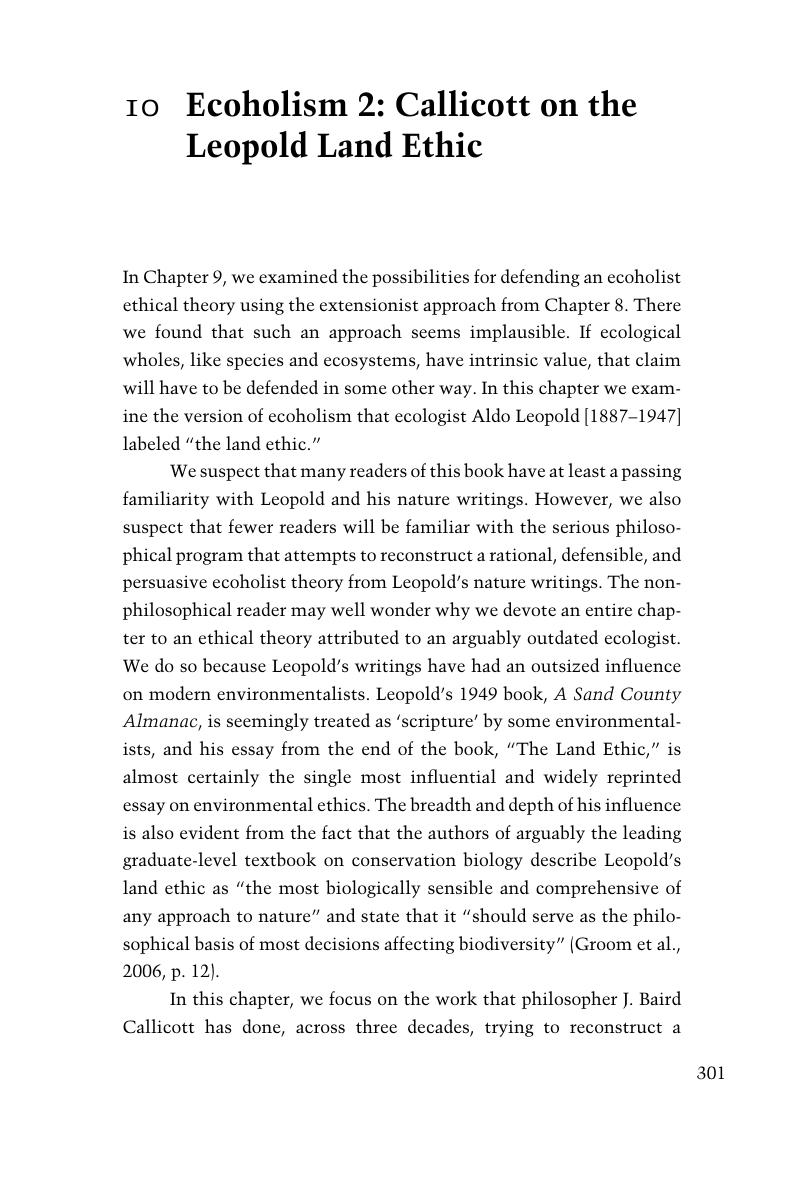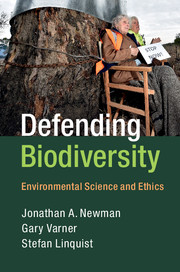Book contents
- Defending Biodiversity
- Defending Biodiversity
- Copyright page
- Contents
- Preface
- Acknowledgments
- 1 Biodiversity and the Environmentalist Agenda
- Part I Instrumental Value Defenses
- Part II Intrinsic Value Defenses
- 7 Methodology in Philosophical Ethics
- 8 Extensionism in Environmental Ethics
- 9 Ecoholism: Do Ecological Wholes Have Intrinsic Value?
- 10 Ecoholism 2: Callicott on the Leopold Land Ethic
- 11 Should Biodiversity Be Conserved for Its Aesthetic Value?
- 12 How Far Do Intrinsic Value Defenses Get Environmentalists?
- 13 Conclusions and Personal Reflections
- References
- Index
- References
10 - Ecoholism 2: Callicott on the Leopold Land Ethic
from Part II - Intrinsic Value Defenses
Published online by Cambridge University Press: 06 October 2017
- Defending Biodiversity
- Defending Biodiversity
- Copyright page
- Contents
- Preface
- Acknowledgments
- 1 Biodiversity and the Environmentalist Agenda
- Part I Instrumental Value Defenses
- Part II Intrinsic Value Defenses
- 7 Methodology in Philosophical Ethics
- 8 Extensionism in Environmental Ethics
- 9 Ecoholism: Do Ecological Wholes Have Intrinsic Value?
- 10 Ecoholism 2: Callicott on the Leopold Land Ethic
- 11 Should Biodiversity Be Conserved for Its Aesthetic Value?
- 12 How Far Do Intrinsic Value Defenses Get Environmentalists?
- 13 Conclusions and Personal Reflections
- References
- Index
- References
Summary

- Type
- Chapter
- Information
- Defending BiodiversityEnvironmental Science and Ethics, pp. 301 - 353Publisher: Cambridge University PressPrint publication year: 2017



